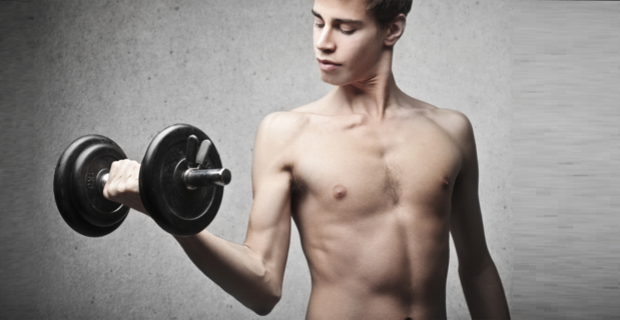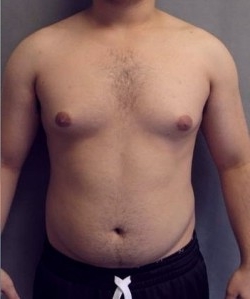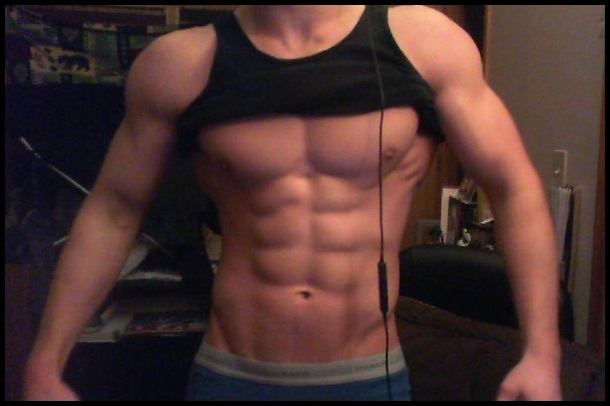Water
Water is one of the main components of the body and one of the most, most vital nutrients. It is used to transport different chemicals and enables the biochemical processes in the body.
Muscles are composed of more than 70% water. The body is an adaptive mechanism, so if you don’t drink enough water, it will try to adapt and protect itself from this dehydration and will start retaining water. This retained water can cause your muscles to look rather bulky than defined. But this is only a fragment of the problems.
If you’re dehydrated your body holds water. Then this water becomes contaminated because without new water the kidneys can’t filter out the contaminants from the water it holds. This puts more effort on the liver because now it must filter out these substances. This hinders the liver’s ability to process fats. This leads to more fat accumulation, worsened hormonal function, and generally worsened condition of the body.
By the way, the main physical cause of kidney stones is dehydration.
Water is not drunk to put off thirst only. If you are thirsty, this is a sign that you are starting to become dehydrated. Drink at least 2 liters of water throughout the day.
Supplements
Supplementation with additional nutrients can influence hormones significantly. It will strengthen your diet and will speed up the process of building muscle mass and burning fat.
Depending on various specifics, our programs include other supplements if required too.
Nutrition according to body type:

If you have a skinny body form, your purpose with nutrition should be increasing your calorie intake in the proper ratio to increase your overall body mass.
There are two ways of doing this of which one is bad. Both of them may include:
- 4-5 meals a day
- 1.5-2.5 grams of protein per kilogram of body weight
- 1-3 grams of fat per kilogram of body weight
- Don’t leave your stomach empty throughout the day
- Protein shakes, no more than 30 grams of protein per dose
- Two liters of water daily
- Additional supplements, such as BCAA, vitamins, and minerals
The popular way (fast body-mass increase, slower muscle building)
The popular theory is to eat whatever you can get your hands on. You need to increase your body mass. Your metabolism is fast and doesn’t allow for much accumulation of fat. And it quickly uses fats. This is partially true.
What is not mentioned in this theory is that carbohydrates especially simple ones, elevate blood sugar. This suppresses the human growth hormone, the key hormone for the increase of muscle mass.
Read more about: Human Growth Hormone
Your fast metabolism is not your disadvantage. On the contrary, it is a very active and productive metabolism. You should use this to your advantage. If you stuff it with much carbs and sugar, you will worsen your metabolism.
You will increase your muscle mass in any case, but in the presence of insulin, this process will run much slower. Remember how many people you’ve seen that train for months, maybe years, with only minimal muscle gains? This is one of the reasons.
If you ingest your calories from carbohydrates such as pasta, rice, potatoes or bread, doughnuts, pies, chocolate, and soft drinks…, you will significantly slow down the process of building quality muscle mass and you can trigger a fall in your mental and physical energy.
All of this must be sustained with proper exercise for your body type and enough sleep so your diet will have a full effect on the increase of weight and muscle mass.
In any case, I don’t recommend this “Popular Way” except if you desire to increase your weight regardless of be it muscle or not.
The hard way (slower body-mass increase, faster muscle building) is the effective way
Per kilogram of body weight, consume 1.5-2.5 grams of protein, and 1-3 grams of fat. Consume no more than 40 grams of carbohydrates a day. Here is the key to having a smart training regime to build muscle mass.
This way your metabolism will be focused on building muscle mass. You’ll have a higher level of physical and mental energy.

If you have a rounded body form, your purpose with nutrition should be lowering your calorie intake to lower your overall body mass through the elimination of extra body fat.
This means a significant decrease in carbohydrate intake and elimination of the intake of simple carbs such as bread, doughnuts, pies, chocolates, and soft drinks… Carbohydrate intake should be no more than 30 grams a day.
A diet with protein and fat intake and reduced carbs is crucial to lower body fat.
Per kilogram of body weight, consume around 1-2 grams of protein and 1-3 grams of fat. Under the right conditions, and in the right proportions, this is enough to reduce body fat. This is not an identical pattern for everyone. Generally, the proteins will significantly speed up the burning of stored fat.
With each meal eat green salads with a good amount of healthy oil. Besides the many benefits for your metabolism, a salad with oil will better satiate your hunger and help with eventual carb craves.
Don’t worry about the fat content in your diet. In the absence of carbohydrates and the presence of proteins, fat will not make you fat but will create better metabolism and hormone function.
Drink at least 2 liters of water daily.
All of this will create proper conditions for lowering the insulin response that stores fat. And with proper exercise for your body type and enough sleep, will increase the secretion of fat-burning and muscle-building hormones.

If you have a muscular body form, your purpose with nutrition should be a gradual increase of fat and protein intake proportionally with your increased muscle mass.
This means maintaining a moderate intake of complex carbs, desirably not more than 40 grams daily. Protein and fat intake depend on more factors. Roughly it goes 1.5-3 grams of protein per kg body weight and 2-3 grams of fat per kg.
If you ingest more carbohydrates, your body mass will increase but it will slow down the increase of pure muscle mass. More carbs mean a more rounded body, instead of clean, ripped muscle; and a slower response of the hormones responsible for increasing muscle mass and burning fat.
Consume protein shakes during the day to meet your daily protein requirements.
Don’t worry about the fat content in your diet. In the absence of carbohydrates and the presence of proteins, fat will not make you fat but will create better metabolism and hormone function.
Drink at least two liters of water daily.
This kind of nutrition and dieting will speed up the process of building muscle mass. And with proper exercise for your body type and enough sleep, will increase the secretion of fat-burning and muscle-building hormones.
Read more: Building muscle mass and burning fat






